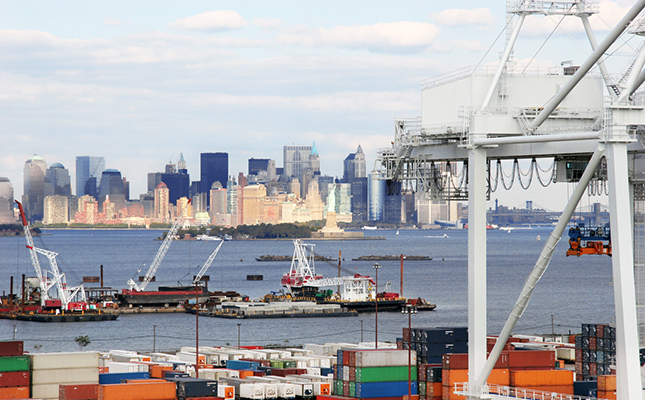Worldwide Logistics Group urges customers to prepare for a possible East and Gulf Coast port strike in January as negotiations between the International Longshoremen’s Association (ILA) and the U.S. Maritime Alliance (USMX) remain at a standstill. With the current contract extension expiring on January 15, hopes for a resolution to the standoff appear dim, largely due to disputes over port automation.
A Look Back: The October Strike
In October, 45,000 ILA members staged a three-day strike that shuttered major ports on the East and Gulf Coasts. This action disrupted the flow of goods and highlighted union concerns over automation in port operations. A tentative agreement on wage increases led to the suspension of the strike and extended negotiations until mid-January. However, the core issue—technology upgrades—remains unresolved.
Negotiations Deadlocked Over Automation
Talks between the ILA and USMX have stalled as automation remains the primary sticking point. USMX argues that past automation initiatives, such as advanced crane technology, have increased both efficiency and job opportunities. The ILA, however, remains skeptical, citing concerns over job losses and cybersecurity vulnerabilities.
Prepare Now: Stay Ahead of Potential Disruptions
With Chinese New Year approaching—a peak shipping period—it is critical to plan for potential delays. Effective preparation and proactive communication can help mitigate the impact of a strike.
Worldwide Logistics Group Suggests Several Short Term Solutions:
- Utilize Canadian Ports: Canadian ports like Halifax and Montreal can serve as alternate entry points into North America.
- Transloading Cargo: Shift cargo to over-the-road transportation via Seattle, Tacoma, or Oakland to bypass affected regions.
- Expedited Rail Services: Expedite cargo via rail to East or Gulf Coast destinations to avoid anticipated congestion.
- Specialized Liner Services: Use alternative shipping routes from Northern Europe to bypass ILA-staffed ports.
Long Term Strategies: Building Supply Chain Resilience
Supply chain resilience is key to navigating disruptions. Companies should consider rethinking strategies and upgrading business processes to maintain flexibility and responsiveness. Some approaches to enhance resilience include:
- Distribution Optimization: Plan inventory storage and fulfillment with quickest routes from oversea suppliers to customers in the US market.
- Technology Driven Partnerships: Working with logistics partners that can offer full view of the supply chain rather than single segments to avoid planning mistakes or expensive rush orders.
- Diversifying Suppliers: Develop relationships with multiple suppliers to avoid dependence on any single source.
- Strategic Inventory Planning: Optimize replenishment and inventory management to account for potential delays.
Ongoing Communication Is Critical
“Communication is key,” said Tom Peacock, president of Worldwide Logstics Group. “In the event of a strike, maintaining an open dialog with our team will help customers identify alternate routes, secure storage options and explore different transportation solutions to minimize disruption.”
As negotiations remain at an impasse, Worldwide Logistics Group remains committed to keeping our customers informed and prepared. By planning ahead and staying flexible, businesses can mitigate the challenges posed by this uncertain period.
For assistance with developing tailored logistics strategies, contact Worldwide Logistics Group today.

